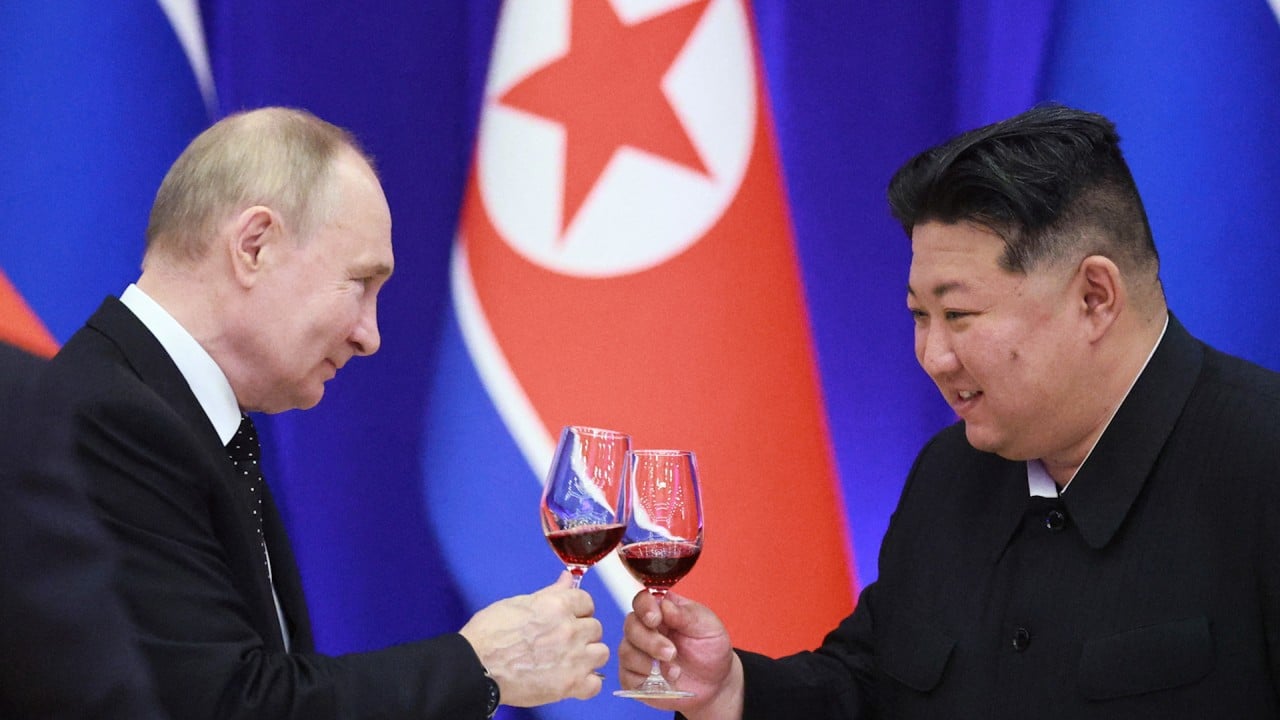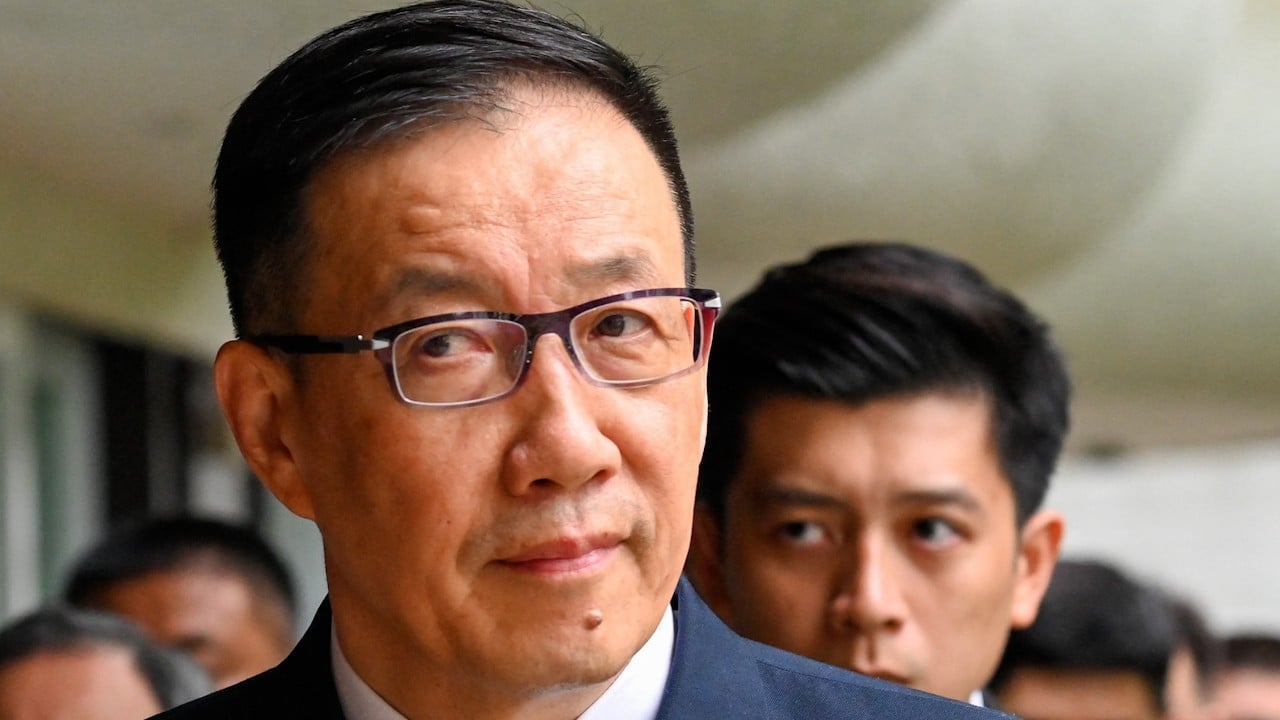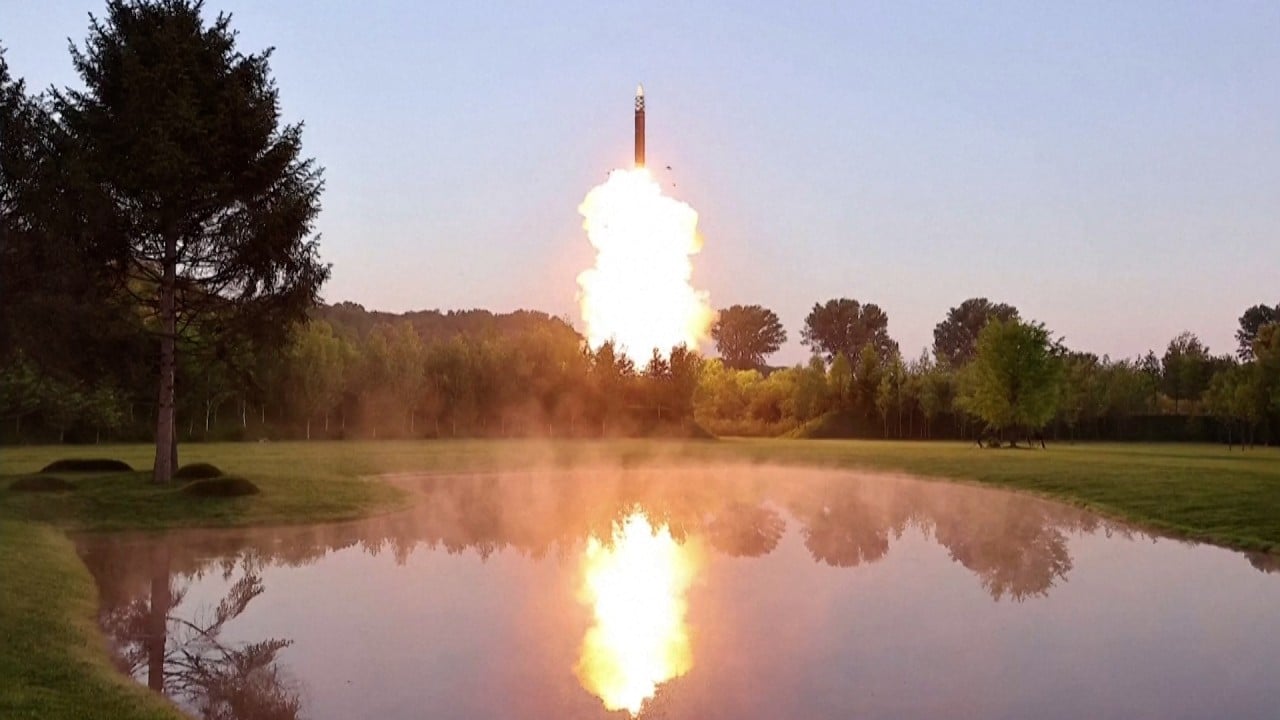The US is deeply concerned over Pyongyang’s possible acquisition of technology from Russia that could be used to develop military satellites, hypersonic missiles and
multi-warhead missiles. Such missiles are alarmingly
hard to detect by radar and could slip past the defence systems of both the United States and its allies.
There are also grave concerns over North Korea
supplying Russia with weapons in its war against Ukraine. The US believes the situation is a concern for China too, given how the Pyongyang-Moscow relationship could destabilise Northeast Asia. This probably explains the US rapprochement towards Cambodia, a key ally of China.

03:05
Putin, Kim sign ‘strongest ever’ defence treaty amid growing tensions with the West
Putin, Kim sign ‘strongest ever’ defence treaty amid growing tensions with the West
Indeed, the US approach to Cambodia has often been defined by its relations with China. Some have argued that China is the main factor in the Cambodia-US relationship.
For instance, after the Trump trade war against China unfurled, Cambodia bore the brunt of a hardening of attitude from the US and its allies. The European Union
partially withdrew Cambodia’s “Everything But Arms” tariff-free trade access over human rights violations while the US
sanctioned Cambodian officials and even a
Chinese company trying to develop a tourism zone in Cambodia.
In 2019, the US raised suspicions that Cambodia may have plans to host Chinese military assets at
Ream Naval Base. In 2021, the US sanctioned
two senior Cambodian defence officials for alleged construction bribery at the base – in return, Cambodia banned US officials from visiting the base. In response to the US arms embargo, Cambodia started to strip US arms from its military forces.
At the most intense points of the US-China rivalry, US-Cambodia relations also dipped to the lowest points.
Now, however, US-China relations are stabilising against the backdrop of a Russia-North Korea alliance, which the US clearly wants Beijing to thwart. The warming was evident at this year’s Shangri-La Dialogue in Singapore, where Austin held his
first meeting with Chinese defence minister Dong Jun, in what was also the first such meeting between US and China defence chiefs since 2022.

02:16
Defence ministers from China and US meet on sidelines of Shangri-La Dialogue in Singapore
Defence ministers from China and US meet on sidelines of Shangri-La Dialogue in Singapore
At the defence forum, while Philippine President Ferdinand Marcos Jnr rustled up reassurance that its treaty ally would defend it against China, Austin stressed the importance of US dialogue with China. This was a change from the fiery rhetoric of the previous two years, when the US
took aim at Chinese bullying and intimidation from the Singapore pulpit.
This time, Austin was at pains to emphasise that war with China was
neither imminent nor unavoidable; soon after, the US
withdrew its Typhon mid-range missile system from the Philippines, in what was believed to be an effort to reduce tensions with China.
These developments seem to suggest there are more imminent issues requiring US attention – which are likely to be Russia’s invasion of Ukraine and its strengthening military cooperation with North Korea.
Russia recently upgraded relations with North Korea to a
“comprehensive strategic partnership”, the highest level of ties. It includes a mutual defence pact, which could enable Russia to supply precision and long-range missiles to North Korea. This is a major concern, not just for the US but also its allies, specifically South Korea and Japan.

02:05
War of words erupts over North Korea’s multi-warhead missile test claims
War of words erupts over North Korea’s multi-warhead missile test claims
The US believes China is “somewhat anxious” at the development, as US Deputy Secretary of State Kurt Campbell said recently in his keynote address at the Council on Foreign Relations.
Despite the US-China rivalry, Washington sees China as a peer competitor rather than an imminent military threat. The international system has greatly benefited China, enabling it to strengthen its influence regionally and globally, and any turbulence is not expected to be good news for China either.
Beijing has been
steering clear of any perception that it is part of the Moscow-Pyongyang alliance. A Chinese foreign ministry spokesman responded carefully to questions on the alliance by saying it was “a matter between two sovereign states. We do not have information on the relevant matter”.
In perceiving Chinese concerns over the military pact between Moscow and Pyongyang, the US is very likely trying to convince China to thwart it. While showing its willingness to maintain communication with China, the US has also adopted a softer approach to Cambodia – a change which, given the backdrop, is probably essentially a goodwill gesture meant for China.
Sokvy Rim is a research fellow at the Cambodian Center for Regional Studies. The views expressed are his own


